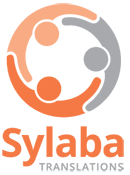The Rohingya crisis is a very sad situation where many people from a group called the Rohingya, who live in Myanmar and nearby places, have had to leave their homes because of violence and unfair treatment. This has caused them a lot of problems and made their lives very hard. They need to be able to understand the language of the places they go to, so they can get the help and resources they need from the English to Rohingya translator.
Facts about the Rohingya Crisis
A long time ago, in 2017, some bad things started happening to a group of people called the Rohingya who lived in a country called Myanmar. Because of these, more than one million Rohingya had to leave their homes and go to other countries like Bangladesh, India, and Thailand. The places where they live now are not very good, and they don’t have many things like schools or hospitals. The Rohingya also have a hard time in their home country because people are not very nice to them and sometimes hurt them.
The Importance of Language Accessibility
If you don’t understand the language that people around you are speaking, it can be hard to get the help and things you need, which can make you feel left out and like you don’t belong. It’s important to be able to speak your own language and keep your culture alive. When people understand your language, it can help you feel more confident and make your life better.
The English to Rohingya Translator
The English to Rohingya Translator can help people who speak Rohingya to understand English better. They help Rohingya refugees talk to people who are trying to help them. It can also help them get information and tell their stories to others. You can find them online.
More knowledge of the Rohingya crisis and language accessibility
There are many things people can do to help marginalized communities understand the language better. Some groups are working hard to keep their own language and culture alive, while others are teaching refugees and immigrants how to speak the language of the place they are in. Some people also use tools to translate and explain things to others. In the past, people have used language to make others feel bad or left out, so it’s important to make sure everyone can speak their own language and keep it alive.
About Rohingya
The Rohingya are a group of people who live in Myanmar and follow the Muslim religion. They have been treated for many years, and things got bad in 2017 when the army attacked them. Because of this, lots of Rohingya had to leave their homes and go to a place called Bangladesh. Many people think what happened was very wrong, and they want the people who did it to be held responsible. People are working to find a way to help the Rohingya refugees.
The Rohingya People
The Rohingya are a group of people in Myanmar who follow the Muslim religion. In 2017, the army did very bad things to them, which made lots of Rohingya leave their homes and go to a place called Bangladesh. What happened was very bad, and many people think it was a terrible crime. Some Rohingya people still can’t go back home. Even though people from other countries have asked Myanmar to help, they have been slow to do anything.
The Rohingya Community
The Rohingya are a group of people in Myanmar who follow the Muslim religion. They have been treated for a long time and don’t have the same rights as other people. The government doesn’t think of them as citizens and calls them by a different names. In the past few years, the situation for the Rohingya was worse, and many of them have been forced to flee their homes in Myanmar due to violence and persecution. Despite international condemnation and calls for protection, a solution to the crisis has yet to be found. As a result, many Rohingya have sought refuge in Bangladesh.
Facts about the Rohingya Language
Here are some facts about the Rohingya language:
- Rohingya is an Indo-European language that belongs to the Eastern branch of the Indo-Aryan languages.
- A Rohingya scholar named Nurul Islam developed a modified version of the Arabic script called Hanifi Rohingya in the 1980s, and they are using it for writing the Rohingya language.
- The Rohingya language has heavily like the Bengali language, which is the language in neighboring Bangladesh.
- The Rohingya language has a rich oral tradition, with many stories, songs, and poems passed down through generations.
- Due to ongoing persecution and violence against the Rohingya people, the Rohingya language is at risk of being lost.
- Despite these challenges, there are efforts underway to preserve and promote the Rohingya language, including through the development of language-learning materials and the creation of digital resources for Rohingya speakers.
The Rohingya Culture
The Rohingya are a group of Muslim people who have lived in Myanmar for a long time. They have their special way of life, including a language, food, and clothes that are different from other groups in Myanmar.
Language
People who speak the Rohingya language use a dialect of the Chittagonian language spoken in southeastern Bangladesh, which has been influenced by Arabic and Persian. They write in a modified version of the Arabic script.
Cuisine
The cuisine of the Rohingya is like Bangladesh, India, and Myanmar. It includes dishes such as fish, beef, chicken, vegetables, and rice, spiced with chili, turmeric, and other local herbs and spices.
Traditional dress
The traditional dress of Rohingya women includes a long dress called a sarong, worn with a blouse and a scarf to cover the head. Men wear a long shirt and trousers.
Music and dance
Rohingya music and dance are an important part of their culture, with a range of traditional instruments such as drums, flutes, and stringed instruments used to create music for dancing and singing.
Religion
Islam is an integral part of Rohingya culture, with most Rohingya being Sunni Muslims. Religious practices, including daily prayers and observance of Ramadan, are an important part of their daily lives.
Conclusion
The Rohingya crisis has shown how important it is to help marginalised communities access essential resources and services. The English to Rohingya Translator is one way people are working to make sure language doesn’t keep people from getting what they need. But we need to keep finding ways to make sure everyone can understand and be understood so that everyone has a chance to live a good life.
Related Posts

Get a quote today
"*" indicates required fields
Subscribe today to receive the latest insights and updates from Sylaba Translations










